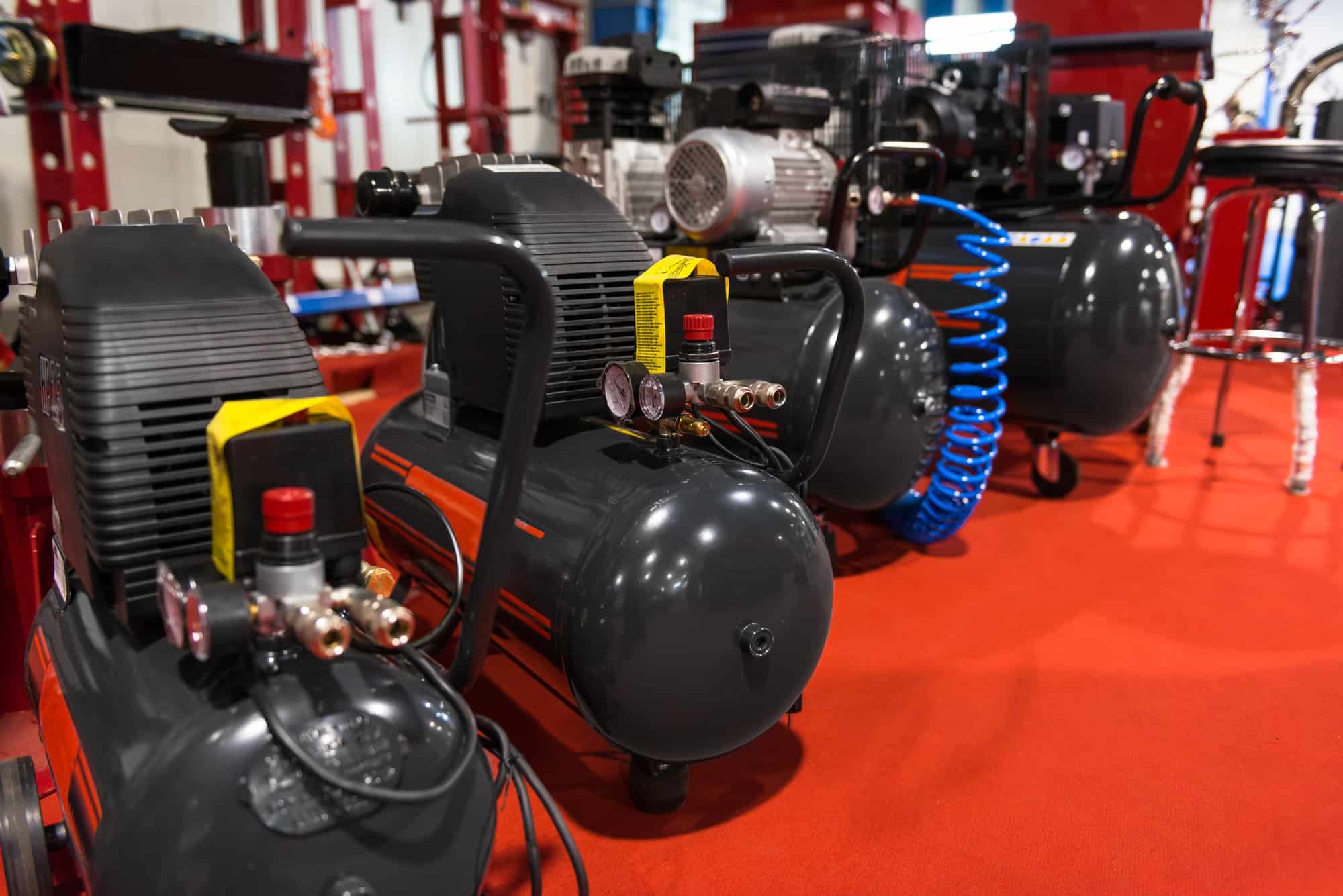In the past, there have been cases where the air holding tank on a compressor exploded. The CDC reports that people have died. While the death was due to an explosion of a commercial air compressor, consumer air compressor explosions can also cause injury.
It is essential for your safety and the safety of others that you know how to take care of your air compressor. Manufacturing defects may be at fault during an explosion, but the leading cause of a compressor rupture is corrosion by water inside the tank.
In fact, most cases of an exploding air compressor tank result from an individual failing to follow the guidelines listed in their owner’s manual. When in doubt, track that down!
But if you’re in a hurry, I will be covering everything you need to know to avoid this situation.
What Causes an Explosion
When it comes to air compressor tanks, corrosion is the leading cause of explosions. Since water is a byproduct of compressed air, it collects quickly inside your tank as condensation.
Any condensation that appears must be drained often if you want to prevent corrosion from taking place inside the tank.
Many air compressor manufacturers advise that you drain the tank after each use. Many also state that you should close the drain valves if you plan on storing your tank for an extended amount of time. That way, the chances of water corroding the tank are much lower.
When I bought my air compressor, it came with an owner’s manual. I know it looks thick and bland, but it has plenty of beneficial information in there that can help to keep you safe. Again, I recommend that you read most of it when you have some extra time.
How You Can Test Your Tank
If you have had your tank for a while, it is a good idea to check it for corrosion.
I recommend that you use a rubber mallet on an empty tank. Hit the top, bottom, sides, and see if it feels easy to dent. Any give in the surface of the tank could be a sign that your tank is rusting.
Sturdy tanks will not have any corrosion, so they will not be dented by your mallet. You will want to strike the tank all over since corrosion might be limited to one spot on the tank’s inside.
Another indication would be if red, rust-colored water were to come out of your tank.
If you notice any of the signs of corrosion, it would be a good idea to replace the unit as soon as you can. At the very least, cease its operation and make sure the tank is pressure neutral.
Taking Care of Your Air Compressor
Buying a replacement air compressor isn’t the most economical way to handle corrosion.
Clearly, the better option is to maintain your current tank. This way, you do not have to worry about getting a new one. Don’t worry — the process is not as complicated as you might think.
I follow the steps below at least one time a year. Doing so extends the life I can expect to get out of the compressor. Plus, it keeps me safe. The following are the things you want to do:
- Change the oil inside the compressor. It might seem challenging, but doing so is an easy project.
- Replace the air filter. Taking out the air filter by yourself is relatively easy. Check your owner’s manual for instructions on how to do so- usually, you can either pull out the filter or remove a few screws to take it out.
- If the compressor-belt seems worn out, replace it. The compressor might be surrounded by plastic, although older models tend not to have this feature. I find that it is easier to replace the belt in older models than the new ones.
- You have finished! The owner’s manual that came with your machine probably recommends that you follow those steps at least once a year. It is always a good idea to check out your tank from time to time. That way, you will notice any issues that could become more dangerous down the road.
Tips For Preventing Corrosion
Corrosion is just another word for rust, which is easy to prevent if you take care of the air compressor. Here are a few of my tips for keeping rust from forming where you do not want it.
- Drain your tank every day. I know this can seem like a hassle, but not doing it leaves a ton of moisture inside the tank, quickly leading to corrosion formation. If you are using the air compressor often, you will need to drain it daily.
- Leave the tank’s drain open. After you let all of the water out, do not reseal the tank. Leaving it open gives the inside more time to air out. Even the smallest drop of water can cause rust to form, but leaving it open can help you ensure that all water has escaped. When using this tip, please make sure the tank is somewhere that more water can not enter.
- Use oil inside the tank. A specialized oil product can stop rust from appearing. You do not have to use it every day to get the benefits either. Just a little bit here and there makes a huge difference.
If you’ve stored your air compressor outside, consider reading our guide about that to ensure you’ve covered your base.
Conclusion
So, can air compressors explode? Well, they can. But, they usually only do if you are not following the guidelines in the owner’s manual that comes with the machine.
Taking care of your tank is easy, too, as long as you follow the steps I listed above.

